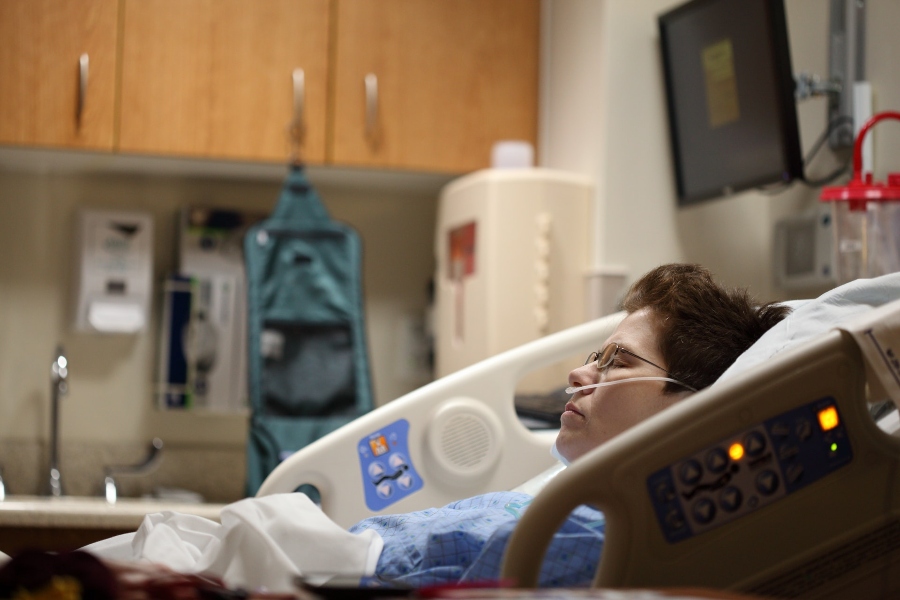
There’s something that just seems particularly sinister about sexual assault by medical providers. When you go to see a doctor or another medical professional, you’re in a very vulnerable position. Anyone who takes advantage of that vulnerability for his or her own sexual pleasure needs to be punished to the full extent of the law, and to also be held accountable from a financial perspective.
At Sand Law, our attorneys have a great deal of experience helping people who were victimized by sexual assault committed by someone in the medical profession. This kind of case requires not only experience, but also a substantial amount of expertise.
We will be happy to let you know how we may be able to help you obtain compensation for damages arising from the predatory behavior of a doctor or any other medical personnel. Contact us online or call 651-291-7263 for a free consultation.
Types of Sexual Assault Committed by Medical Providers
There are many forms of sexual assault a medical professional can commit. These are just a few of the more common ones.
- Taking videos or photos of a patient’s genitalia.
- Performing unnecessary exams involving the pelvic area, the breast, or other private areas of a patient’s body.
- Kissing, hugging or touching a client in an unwanted fashion.
- Committing a sexual act after administering anesthesia to a patient.
- Interrupting a patient while they are dressing or undressing, or exposing themselves to a patient.
- Performing self-gratification in the presence of a patient.
It can be a very fine line between legitimate medical treatment and sexual abuse. Examinations will often include touching a patient’s private parts in order to diagnose a potential health issue. Here are some examples of acceptable and unacceptable medical behavior during an exam.
When a medical examination becomes inappropriate
The following are considered acceptable behavior during a medical examination:
- Asking the patient to only undress the portion of the body that needs to be examined.
- Making sure the medical professional is the same gender as the patient, if the patient requests that arrangement.
- Encouraging a patient to tell the medical professional if any part of the examination feels uncomfortable, or seems wrong.
- Wearing gloves at all times.
- Thoroughly explaining every part of the examination before and during the time the medical professional needs to perform a certain action.
These are some examples of unacceptable medical behavior.
Refusing to keep a patient informed regarding what needs to be done during the examination.
- Ordering the patient to undress parts of the body that don’t need to be examined.
- Telling the patient to be quiet during the exam, or refusing to answer any questions.
- Not using gloves while examining genitalia or any other private body areas.
- Refusing to have another medical professional or other person in the room while the examination is being performed.
- Asking inappropriate or uncomfortable questions about a patient’s sexual activity.
Settings Where Sexual Assault by a Medical Provider Occur
You might assume that a doctor’s office is the only place where medical sexual assault would take place. There are actually many others. These are just some of the places where medical sexual assault occurs:
- Dental offices
- Chiropractor’s offices
- Physical therapy facilities
- Mental health facilities
- Centers where cosmetic surgery is performed
- In-home medical visits
One particularly disturbing area where medical sexual assault will often occur is a nursing home. Residents in nursing facilities are often incapacitated, and incredibly vulnerable to a sexual predator. People trust that these facilities will take the best possible care of their parents or loved ones. In far too many instances, the opposite is the truth.
Any patient in a nursing home can be subjected to sexual assault – gender often doesn’t make a difference. Women are far more likely to be subjected to this behavior, but it happens to men as well. To make matters even worse, victims of this kind of abuse will typically have no way to escape, or have any way to tell their children what happened.
What to do After Suffering from Medical Sexual Assault
If you believe a medical professional has subjected you to sexual assault, there are several steps you can take to find justice.
- First, report what happened to your local police. Filing a police report can be a crucial piece of evidence that will later strengthen your case should you decide to file a lawsuit against the responsible parties.
- Next, get in touch with the facility where the assault took place. There are many instances where the operators will conduct their own investigation, which could help prevent other patients from suffering the same trauma.
- You should also consider contacting the medical licensing board in your state. The board may also conduct an investigation, and that could result in revocation of the medical professional’s license.
- Finally, you could also file a civil lawsuit against those responsible for your suffering. At Sand Law, we can help you obtain compensation that could go toward paying for any counseling you need to undergo, as well as medical costs and lost wages.
The most important thing you can do, however, is to take care of yourself. You might tell everyone you’re fine, but you might be at risk of suffering severe psychological issues as a result of the attack. Don’t be afraid to reach out to a mental health expert.
Are Medical Professionals Held to an Ethical Standard?
The answer to this question is a resounding, “Yes.”
The AMA (American Medical Association) maintains a zero-tolerance policy regarding inappropriate sexual behavior toward patients exhibited by anyone in the medical community. Not only is this type of behavior just plain unethical, it also damages the medical profession as a whole.
Why You Should Hire an Attorney to Argue Your Case
Sand Law attorneys always provide our clients with passionate representation. But when we hear of a doctor – or any other type of medical professional – sexually abusing a vulnerable patient, we get even more motivated to help.
This can be an extremely complex type of case, requiring special skills. We have those skills, and we will fight to help you obtain the compensation to which you are entitled. You focus on healing from your horrible experience. We’ll take care of the rest.
Get a free consultation by contacting Sand Law online or calling 651-291-7263.

